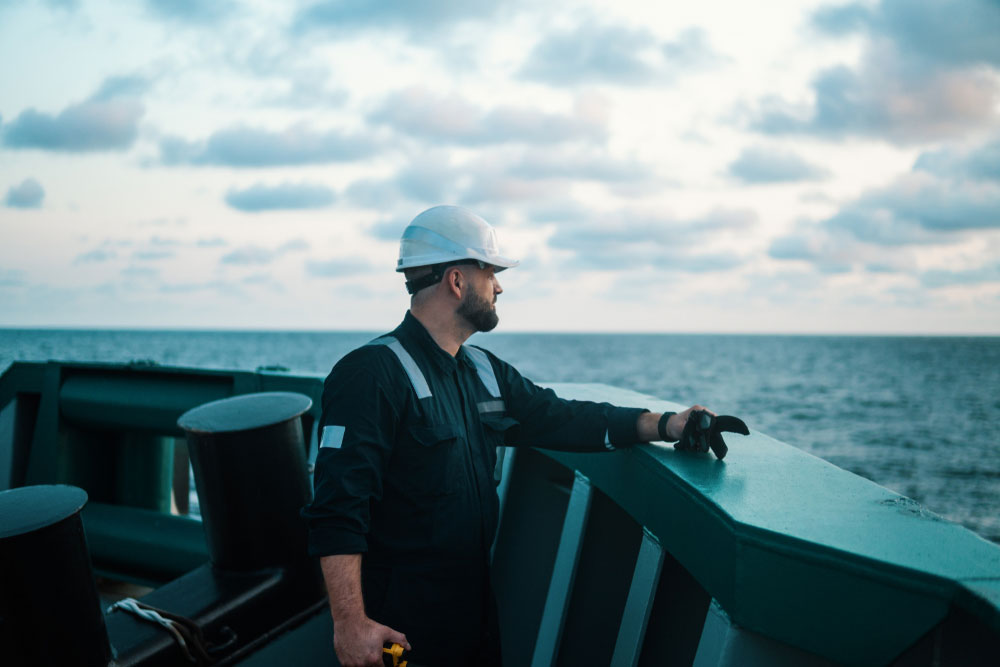Exploring Maritime Law: A Comprehensive Guide to Maritime Legalities
Maritime Law, also known as Admiralty Law, is a body of laws, conventions, and treaties that govern maritime business and other nautical matters, activities, and disputes occurring on navigable waters, which can be high seas, harbors, bays, inlets, and rivers that are used for trade, travel, or commerce.
These navigable waters need to run between states or in foreign waters because once a body of water is entirely contained within one state, federal admiralty jurisdiction does not apply. It is the responsibility of federal agencies, such as the United States Coast Guard, to establish the framework and regulations for safety, security, and environmental performance.
A Deeper Dive into Maritime Law
Maritime Law has a deep, long-standing history that stretches back to 900 AD and has its roots in the English common law tradition but over time, America developed its own body of admiralty law that was later amended through federal legislation after the adoption of the U.S Constitution in 1789 with the Judiciary Act of 1789 which officially gave federal district courts being given jurisdiction over admiralty law cases. Currently, maritime law governs:
- Marine commerce, pollution, and navigation
- Seafaring cargo and passengers
- Marine insurance and salvage
- Arrests in navigable waters
- Ship collins
- Towage and liens
- Personal injury claims
- Maintenance and cure for injured maritime workers
- International trade
- Generally, any type of case where the court may need jurisdiction over maritime property
Establishing the Jones Act and DOHSA
Intending to ensure order and safety in this unique domain, Maritime Law provides a comprehensive framework for resolving legal matters and upholding the rights and responsibilities of all parties involved. One of the most important components of maritime law for maritime workers is The Jones Act, also referred to as the Merchant Marine Act of 1920. This act established the right of maritime workers to maintenance, the payments that cover day-to-day expenses, and cure, the payments that cover medical expenses related to the work injury. To be eligible for a claim three conditions must be met:
- A vessel must be involved.
- The incident must have happened on navigable waters.
- The incident must have occurred when the worker was performing job-related duties.
The Jones Act also allows maritime workers to sue their employers if negligence played a factor in the injury or illness and employers can be held liable if their negligence makes a vessel considered “unseaworthy.” An “unseaworthy” vessel can have numerous issues such as:
- Slippery conditions on decks or other surfaces
- Broken or missing handrails or deck rails
- Failure to main and repair vessel and equipment properly
- Employing a skeleton crew which is when there are not enough crew members to operate the vessel safely
- Failure to properly train crew
- Negligent piloting and navigation
- Exposure to toxic materials
If it is determined that negligence played a factor in the injury or illness, workers may be entitled to compensation for losses including current and future medical bills, lost wages, loss of earning capacity, pain and suffering, permanent disability, scarring and disfigurement or loss of quality of life. The statute of limitations in the Jones Act is three years from the incident.

When it comes to wrongful death on a vessel that occurs 3 nautical miles from a United States shoreline, The Death on High Seas Act is implemented. Enacted in 1920, alongside the Jones Act, the Death on the High Seas Act (DOHSA) was established to provide rights to families who lost a loved one at sea due to negligence, a common example of this is death on a cruise ship. The statute of limitations on DOHSA is three years.
DOHSA allows eligible survivors including spouses, children, parents, or other dependent residents to recover damage for pecuniary loss. Survivors are not entitled to compensation for funeral expenses or medical bills but only cover financial compensation immediately pertaining to the loss of your loved one and no other related expenses.
Additional Protection within Maritime Law
In 1927, the Longshore and Harbor Workers’ Compensation Act (LHWCA) is a federal workers’ compensation program for employers in traditional maritime occupations including longshore workers, ship-repairers, shipbuilders, shipbreakers, or harbor construction workers performing work in or adjoining navigable waters. If a worker is injured on a dock, pier, wharf, shipyard, or maritime terminal, they could be entitled to compensation under LHWCA. The benefits under this act include:
- Payment of medical expenses related to injury
- Coverage of vocational rehab services
- Disability benefits partially cover lost wages
- Survivors’ benefits
Unlike the Jones Act and DOHSA, the Longshore and Harbor Workers’ Compensation Act benefits are provided on a no-fault basis, so workers or surviving loved ones do not need to prove negligence was a factor. The statute of limitations on LHWCA is one year after the incident.
Passenger Personal Injury law is another component of maritime law. Passengers of vessels such as cruise ships who have suffered from injury or illness also have rights under maritime law. The passengers have a right to recover damages for personal injury, but the location of the incident will decide whether it falls under state or maritime law. For a personal injury claim to be viable under maritime law, negligence from crew, caption, or ship owner must be established. Often, cruise ships wave the normal three-year statute of limitations and use a one-year instead.
Handling Complex Waters
With the open seas being regularly used both as a means of transport and as a resource, maritime law must exist to protect this asset and the people who utilize it. Maritime laws can often be complex, so it is important to consult with an experienced attorney if you find yourself in choppy waters. If you have any questions or concerns about maritime law or claims, contact us at The Law Offices of Bram J. Gechtman today.




